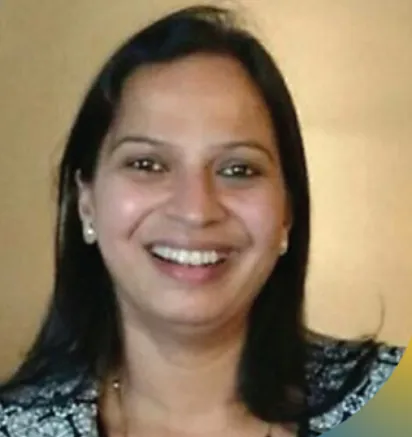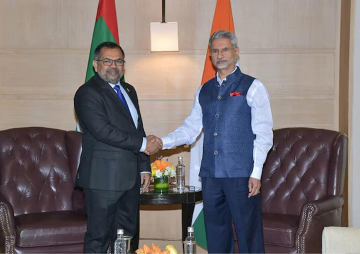
Water, the life-giving elixir, plays a pivotal role in sustaining all forms of life on our planet. It's not only a basic necessity but also a fundamental human right. The 2023 theme for World Food Day, ‘Water is Life, Water is Food: Leave No One Behind,’ captures the significance of water as a source of sustenance, and its role in ensuring food security.
The rapid growth of the population, the development of cities, and the effects of climate change are placing the planet's water resources under greater strain.
Water is a fundamental component of life on Earth, making up more than half of the human body's weight and covering 71 percent of the Earth's total surface area. Of this, only 2.5 percent is fresh water, which is used for drinking, farming, and industrial purposes. The interconnectedness of water with life goes far beyond our physiological makeup. Water supports ecosystems, influences weather patterns, and drives the planet's geological processes. The data for Sustainable Development Goal (SDG) 6 on ‘Clean water and Sanitation for all’ indicates that 2.4 billion people living in water-stressed countries; 2.2 billion people lack safely managed drinking water; 3.5 billion people lack access to safely managed sanitation; and 2.2 billion lack basic hand-washing facilities. The rapid growth of the population, the development of cities, and the effects of climate change are placing the planet's water resources under greater strain. Water availability and quality have decreased by 20 percent per person over the past few decades due to misuse, extraction, pollution, and climate change. Approximately 600 million people, at least in part, rely on water for their livelihoods. The issue of global food insecurity is a pressing concern. As the world's population continues to grow and the effects of climate change impede agricultural production, the importance of water in the production of food cannot be underestimated. Agriculture is the largest consumer of freshwater resources, accounting for approximately 70 percent of all freshwater withdrawals. The transformation of food systems necessitates the provision of adequate quantities, quality, and stability of water. The lack of adequate water has a direct impact on all components of food systems. The lack of a unified approach to food security and water security hinders progress towards SDGs 2 (zero hunger) and 6 (water and sanitation). Monitoring progress on the linkages between water and food systems is essential for the provision of water, food security, and nutrition. However, the efficient and sustainable use of water in agriculture remains a challenge. Mismanagement, over-extraction, and inefficient irrigation practices have led to water scarcity in many regions, jeopardising food security. This underscores the need for responsible water management, especially in agriculture, to ensure that water resources are preserved for future generations.
The transformation of food systems necessitates the provision of adequate quantities, quality, and stability of water.
Water scarcity is a growing global challenge. According to the United Nations, it is estimated that up to 5 billion people or two-thirds of world's population could face water scarcity at least one month a year by 2050. Climate change exacerbates this issue, leading to more frequent and severe droughts in some regions while causing excessive rainfall and flooding in others. The impact of water scarcity is not uniform, and it often falls disproportionately on marginalised communities. The lack of access to clean water not only affects people's health but also hinders economic development and perpetuates the cycle of poverty. The “Right to Water” is an essential human right as declared by the United Nations in 2010, regardless of socio-economic status or geographical location. Achieving universal access to clean water by 2030, as outlined in the SDGs, requires concerted effort, investment, and innovative solutions. To overcome the water crisis, we must prioritise the needs of those who are most vulnerable and marginalised to ensure equitable access. Smallholder farmers, marginalised communities, and vulnerable groups must have equal opportunities to secure and utilise water for their agricultural needs. Employing innovative techniques such as precision agriculture and drip irrigation, farmers can maximise crop yields while minimising water wastage. This not only enhances productivity but also conserves finite water resources. Agriculture is particularly vulnerable to climate change, with shifting precipitation patterns and increased temperature extremes. Sustainable water management strategies must adapt to these changes, helping farmers maintain their livelihoods even in the face of environmental challenges. Technological innovation, including remote sensing and data analytics, plays a pivotal role in monitoring and managing water resources effectively.
Employing innovative techniques such as precision agriculture and drip irrigation, farmers can maximise crop yields while minimising water wastage.
Achieving this equity necessitates the implementation of policies, practices, and governance structures that prioritise inclusivity and address historical disparities in access to water. To ensure a sustainable future for our planet and to leave no one behind, we must prioritise equitable access to clean and safe water, promote sustainable agricultural practices, and address the interconnected challenges of water and food security. Only by recognising the intrinsic value of water and its central role in our existence can we hope to build a more resilient and food-secure world for present and future generations.
Shoba Suri is a Senior Fellow at the Observer Research Foundation.
The views expressed above belong to the author(s). ORF research and analyses now available on Telegram! Click here to access our curated content — blogs, longforms and interviews.




 PREV
PREV


